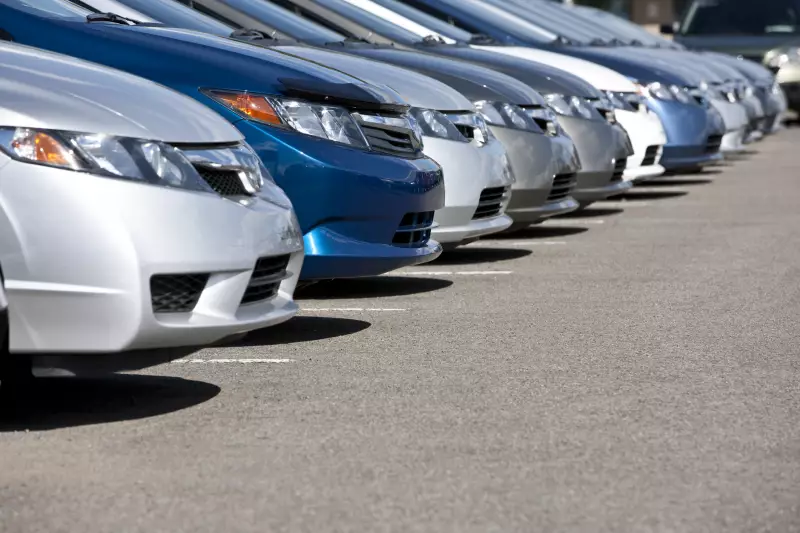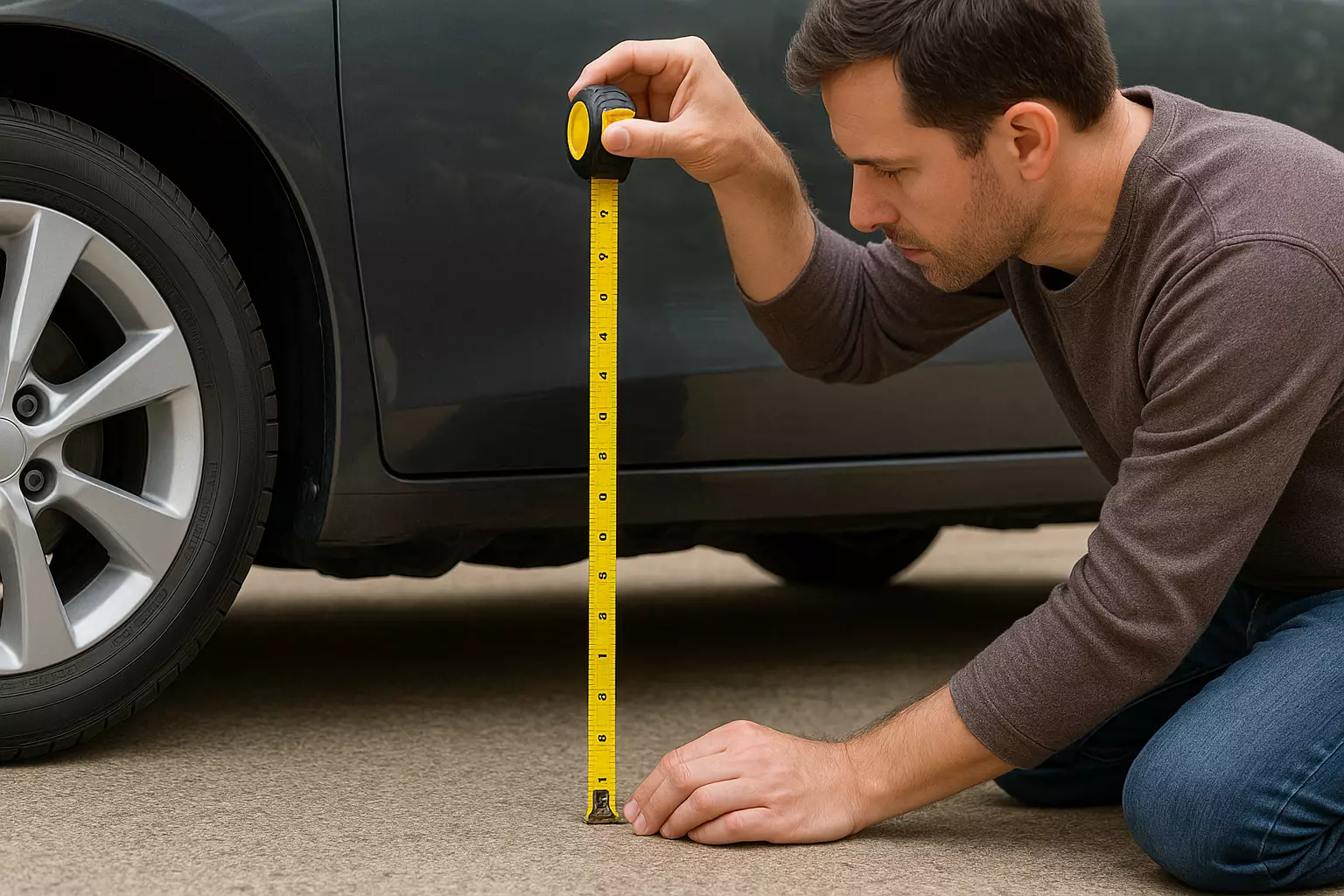Ever spot the perfect ride online or at a car dealership, but you need time to arrange financing, trade in your current vehicle, or you simply sleep on the decision? If so, you've likely been left wondering: “Can a dealership hold a car for you?" Or maybe you’ve asked, can you reserve a car at a dealership without committing to buy it on the spot? If this is you, you’re not alone.
Buyers often worry about how long a dealer will keep that dream car off the lot, what happens if you back out, and whether you need to put a down payment to lock it in.

Can a Dealership Hold a Car For You?
Yes. Many dealerships will hold a car for you, but the details vary widely from dealer to dealer. Generally, dealerships do offer “holds” or "reservations," yet the specifics vary widely depending on demand, individual dealer policy, and whether you’re willing to put down a deposit.
When a dealership agrees to hold a car, they’re essentially promising not to sell that exact vehicle to anyone else for a defined period. It's more of a courtesy that gives you breathing space to finalize paperwork, secure financing, or arrange a test drive.
Generally, most dealerships will entertain reservation requests based on the following factors:
- Car Demand: When a particular car is in high demand, dealers know they can turn that unit over quickly. Usually, high-demand models such as limited editions, newly released packages, and hybrids sell within hours. Therefore, they rarely get held without deposits and may only be held for a very short duration, usually not exceeding 48 hours.
- Inventory Turnover Pressure: Every vehicle sitting on a lot carries a holding cost that is determined by floor plans, financing, lot space, insurance, and risk of depreciation. To this end, dealers aim to move units quickly to reduce these costs. Therefore, high-volume sellers may limit the hold to 24 hours or require a deposit to offset the financial risk of taking one vehicle off the active inventory. Conversely, models that have lingered past their sell-through date might be easier to hold, as the dealer has more incentive to reserve or negotiate discounts to clear the older inventory.
- Deposit Requirements: Most hold and reservation agreements are contingent on a deposit. A show of serious intent that offsets the dealer’s risk. Typically, deposits may range between $500 and $1,500, with luxury and specialty vehicles commanding higher values. Generally, dealerships may refund your deposit if you keep to their terms.
- Dealership Policy: The size and structure of the dealership play a role in whether a dealership may reserve a vehicle. Brand-affiliated dealerships typically follow manufacturer guidelines on reservations. They may offer formal holds backed by dealership management systems, with clearly spelled-out deposit rules and standard hold timeframes. Smaller dealerships may have less strict hold policies to win a sale. They may hold a car for longer, with minimal deposits or a 100% deposit return policy.
What Does Reserving a Car at a Dealership Mean?
Reserving a car at a dealership means asking the dealership to temporarily hold a specific vehicle for you, effectively taking it off the lot and preventing it from being sold to another customer for an agreed-upon timeframe. This reservation gives you time to finalize your decision, secure financing, conduct trade-in appraisals, or arrange delivery without the fear that another buyer will purchase the car you have your eyes on.
When you’re reserving a car at a dealership, you’re essentially calling dibs on a vehicle you are seriously interested in. Although this sounds simple, not all holds are the same. Knowing the difference between reservations can save you headaches and ensure a specific car is held for you.
- Informal Holds (Verbal Agreements): This is usually a simple verbal agreement with a salesperson or dealership to hold a car for you for a short period, such as a few hours or until the next day. Usually, there is no paperwork in an informal hold, and neither does money exchange hands. Agreements are typically over a handshake, phone call, or verbal promise from the dealer not to sell the car. However, there are no legal guarantees. If another buyer appears or the salesperson forgets, the dealer may sell the car to someone else. There is no legal obligation for the dealer to honor a verbal hold.
- Formal Holds (Written Agreements): Formal holds are a more secure process involving paperwork. It is a documented reservation that outlines the terms of the hold, accompanied by a deposit. Usually, you’ll sign a document specifying the exact car, the agreed-upon price, the deposit amount, the hold duration, and the terms for refunding the deposit. You’ll typically provide a deposit between $500 and $1,000 to signify your interest and compensate the dealer for taking the car off the market. Formal holds are more secure, providing proof for any disputes over refund or timing. However, depending on the dealerships, deposits may not be fully refundable.
Can You Reserve a Car at a Dealership Without a Deposit?
Generally, it may be possible to reserve a car at a dealership without a deposit. However, there are situations where a dealership may accept a verbal agreement to hold a vehicle without payment.
- The agreement is for a short timeframe, typically a few hours.
- The car isn’t in high demand and has been on the lot for a while.
- The dealer has a strong customer relationship with the intended buyer.
- The dealership is small and relies on relationship-based sales, granting verbal agreement to serious-looking buyers.
- You have shown immediate intent to purchase the car but need a brief window to get insurance or finalize a trade-in appraisal.
While reserving a car at a dealership without a deposit is sometimes possible, it carries inherent risks. To this end, some dealers require a deposit to reserve a vehicle for the following reasons:
- A deposit signals you’re a committed buyer, compensating the dealer for taking the car off the market.
- A deposit secures your intent. Especially for popular, new, or rare models, dealers won’t risk losing a sale on a verbal promise.
- You need more than a few hours to arrange finance or sell your car.
- A deposit discourages customers from indefinitely reserving multiple cars at different dealers while deciding.
- A signed deposit agreement formalizes the hold terms, price, duration, and refund policy, protecting both you and the dealer.
How Long Will a Dealer Hold a Car With a Deposit?
The length of time a dealership will hold a car with a deposit varies based on the type of deposit agreement and specific terms negotiated. The typical hold periods are:
- 24-48 hours: Dealers rarely hold high-demand model vehicles beyond a few hours, as other buyers are just a call away. They will grant one or two business days with a refundable deposit.
- 72 hours: Formal holds with a refundable deposit. This allows time for financing approval, inspections, or securing trade-in valuation.
- Up to a Week: It is sometimes available for factory orders, where the hold may extend until the vehicle arrives. It requires a detailed contract specifying delivery timeframes. Deposits may generally be non-refundable.

What Happens if You Change Your Mind?
Reserving a car at a dealership gives you breathing room to fine-tune insurance, financing, or trade-in valuation. But sometimes, life happens, and you may decide not to follow through. Here’s what typically happens if you change your mind after reserving a car at a dealership.
- The dealer may refund your deposit.
- Full Refunds: Most dealers offer a full deposit refund if you cancel within the agreed hold window. You must notify the dealer before the hold expires and comply with contract terms.
- Partial Refunds: Some dealers offer partial refunds if you decide to back out. Usually, they deduct an administrative fee to cover paperwork and marketing costs. However, you generally get most of your deposit back.
- Non-refundable Deposits: The entire deposit is kept by the dealer as compensation for lost time and floor-plan interest, especially for high-demand or limited-run cars. This usually applies when the dealer wants to discourage casual inquiries.
- The dealer may be flexible.
- Willingness to refund the deposit before the hold expires. If the deadline passes, the dealer is under no obligation to refund the deposit.
- Some dealers may offer to apply the deposit to another vehicle on the lot or extend the hold period if you’re uncertain.
- Grant an extension of the hold period for extenuating circumstances, such as delay in financing approvals or inspection scheduling.
Pros and Cons of Reserving a Car at a Dealership
Reserving a car at a dealership can be a smart move when you’ve found exactly what you want. However, reserving a car has its benefits and drawbacks.
Pros
- It helps you lock in the exact make, model, color, and trim you want
- It stops other buyers from getting the popular or limited-edition model, especially in tight markets.
- Reserving a car at a dealership buys you time, allowing you to finalize lease terms, loan approval, get a pre-purchase inspection, and negotiate a trade-in valuation
- Reduces paperwork, as most dealers pre-fill title and registration forms, so you can drive off within minutes when you eventually pay the purchase price.
- Written agreements often lock in the negotiated price, shielding from sudden price increases.
Cons
- If you back out, non-refundable deposits are forfeited. In addition, some dealers may not give back refundable deposits if they claim lost opportunities.
- You may be pressured to close the sale too quickly, preventing you from doing your due diligence, especially if the dealer imposes short hold windows.
- Become tied to the dealer because of the deposit, preventing you from exploring other dealerships.
- Signing a purchase contract with the deposit agreement legally obligates you to buy the car. Exiting the contract may require legal help or forfeiting larger sums.
- While your car is on hold, you can’t negotiate on alternate vehicles or take advantage of newly arrived stock.
Tips for Buyers on How to Reserve a Car at a Dealership
If you are planning to reserve a car at a dealership, here are actionable steps you can take to maximize your chances of reserving the exact vehicle you want while protecting your interests:
- Do your homework before you show up. Identify the exact make, model, trim, color, and options you want. If the vehicle is a hot new release, expect stricter hold terms. Secure financing pre-approval from your bank. Dealers are more willing to grant holds when they know you already qualify for a loan.
- Ask about the dealership’s hold policies upfront. Clarify the time frame and get a precise expiration date and time. Understand your eligibility, as some holds are available only to buyers with completed credit applications, trade-in approvals, or proof of insurance.
- Get all agreed-upon terms in writing. A written agreement is superior to verbal promises. Ensure the term states the VIN, deposit amount, due date, hold window, and refund/cancellation policy.
- Understand the deposit terms. Know if the dealership offers full refunds, partial refunds, or no refunds.
- Stay proactive during the hold period. Communicate early about delays in financing or trade-in paperwork, as this may help extend the hold time in some instances.
- Negotiate. A higher deposit may be key to unlocking a longer hold. Ensure that any negotiated price applies upon completion, even when rebates, incentives, or rebates change during the hold window.
- Walk away if the dealer refuses to put the terms in writing or the deposit conditions are too steep.

Alternatives if a Dealership Won’t Hold a Car
It can be frustrating to find the perfect vehicle only to hear that the dealership won’t hold it for you. In high-demand markets, many dealers won’t risk taking a car off the market without a firm commitment. However, you still have options. If reserving a car at a dealership isn’t possible, there are other alternatives to help you avoid losing out on the vehicle you want.
Leave a refundable deposit. Even if the dealership doesn’t officially offer holds, you can ask to leave a fully refundable deposit as a good-faith gesture. It shows the dealer you are serious without forcing you to complete the purchase immediately. However, ensure you get the terms in writing, including refund and expiration details.
Get pre-approved financing in advance. One of the reasons dealers hesitate to hold cars is uncertainty, especially whether you qualify for financing. Pre-approval speeds up the process by removing doubt and showing you’re ready to close the deal quickly. You’ll also have more leverage to ask for a courtesy hold.
Search multiple dealerships for the vehicle. If one dealership won’t accept holding a car, try the next. Most vehicles, especially new ones, are stocked across multiple locations. You may use online inventory tools to check for dealerships near you. Call or email to ask about hold and deposit policies before making the trip.
Ask to tag or flag the vehicle in the system. Even if the dealer won’t officially hold the car, some may permit a “soft hold” or tag the vehicle in their sales system for a few hours. While this doesn’t take it off the market, it signals that someone is interested.
Consider factory ordering or custom builds. If the dealership doesn’t hold stock vehicles, consider ordering the exact vehicle you want from the factory. Custom ordering gives you control over specs and features. Although it may take anywhere from 6-12 weeks before you get the car




















